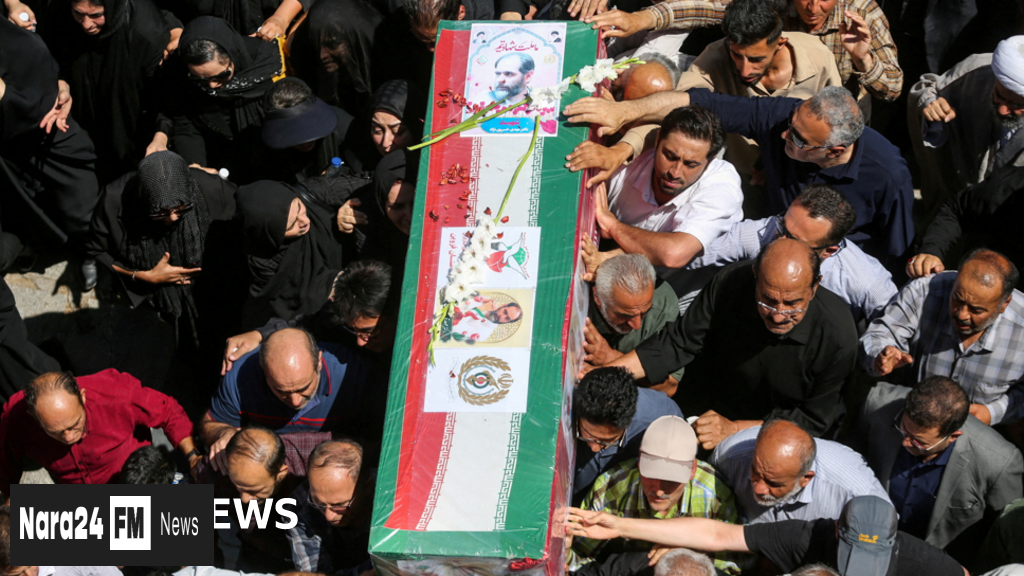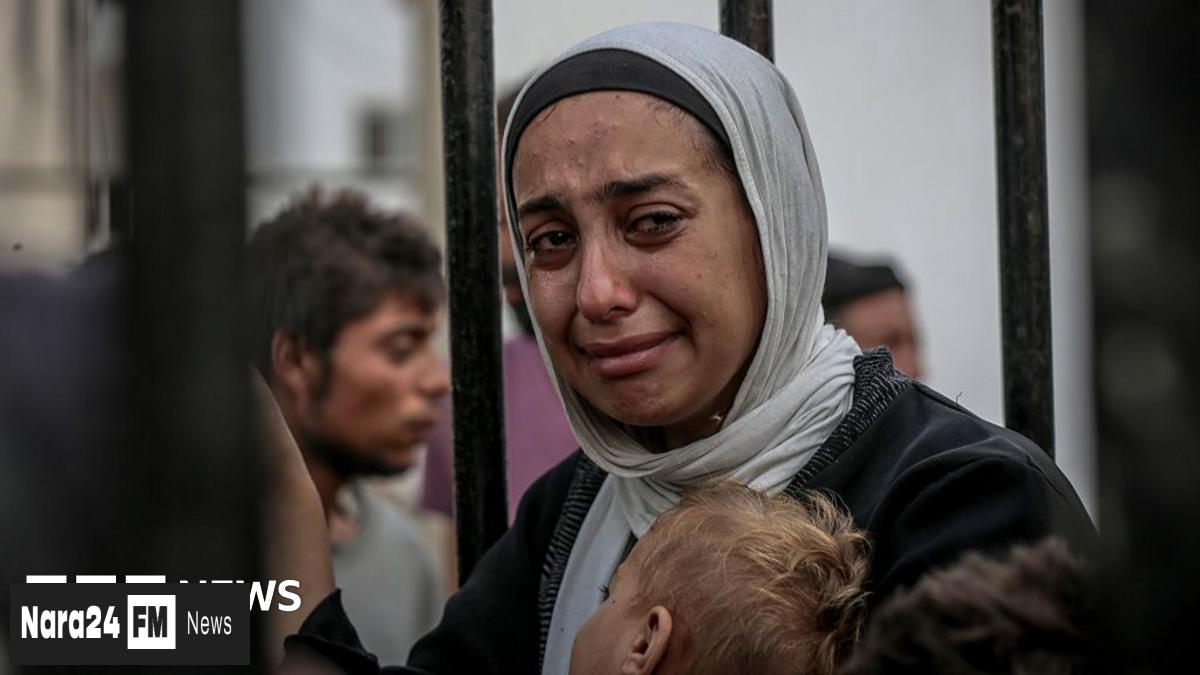In This Article
- State Funeral for Fallen Military Leaders and Scientists
- U.S. Military Intervention and Trump's Stance
- Iranian Government Response and Regional Implications
- Aftermath: Public Sentiment and Regional Stability Concerns
Key Takeaways
- Iran held a state funeral for approximately 60 individuals, including high-ranking military leaders and nuclear scientists killed in the recent 12-day conflict with Israel.
- The U.S. intervened in the conflict by bombing Iranian nuclear sites, and President Trump warned of potential further military action if uranium enrichment reaches concerning levels.
- Trump dismissed Iran's claim of winning the war and made provocative statements about Supreme Leader Khamenei, which drew sharp criticism and threats from Iran's Foreign Minister.
- The conflict has left Tehran in mourning, with ongoing recovery efforts and concerns about regional stability highlighted by damage to Iran's nuclear facilities.
Iran conducted a solemn state funeral on Saturday to honor approximately 60 individuals, including high-ranking military leaders and nuclear scientists, who were killed during the recent 12-day conflict with Israel. The ceremony took place near Enghelab Square in central Tehran, where coffins draped in the Iranian flag and adorned with portraits of the deceased were surrounded by large crowds of mourners.
Among the notable figures being laid to rest was Mohammad Bagheri, Iran’s highest-ranking military officer and chief of staff of the armed forces. The funeral also included Hossein Salami, commander-in-chief of the Islamic Revolutionary Guards, and Mohammad Mehdi Tehranchi, head of Azad University in Tehran and a prominent nuclear scientist.
The conflict, which ended with a ceasefire earlier this week, saw the United States intervene by bombing key nuclear sites in Iran. In response, U.S. President Donald Trump stated he would "absolutely" consider further military action against Iran if intelligence indicated the country was enriching uranium to concerning levels.
Trump also dismissed claims by Iran’s Supreme Leader Ayatollah Ali Khamenei that Iran had "won the war with Israel," calling the statement "blatantly and foolishly" false. He further asserted that he had saved Khamenei from a "very ugly and ignominious death," a claim that drew sharp criticism from Iran’s Foreign Minister, Abbas Araghchi.
Araghchi warned Trump against making "disrespectful" comments about Khamenei and emphasized that the Iranian people would not tolerate threats or insults. He also acknowledged that significant damage had been inflicted on Iran’s nuclear facilities during the recent bombings.
As Tehran begins to recover from the conflict, its residents remain deeply shaken, and the nation continues to grapple with the aftermath of the violence and its implications for regional stability.








Comments (0)
Leave a Comment
Be the first to comment on this article!